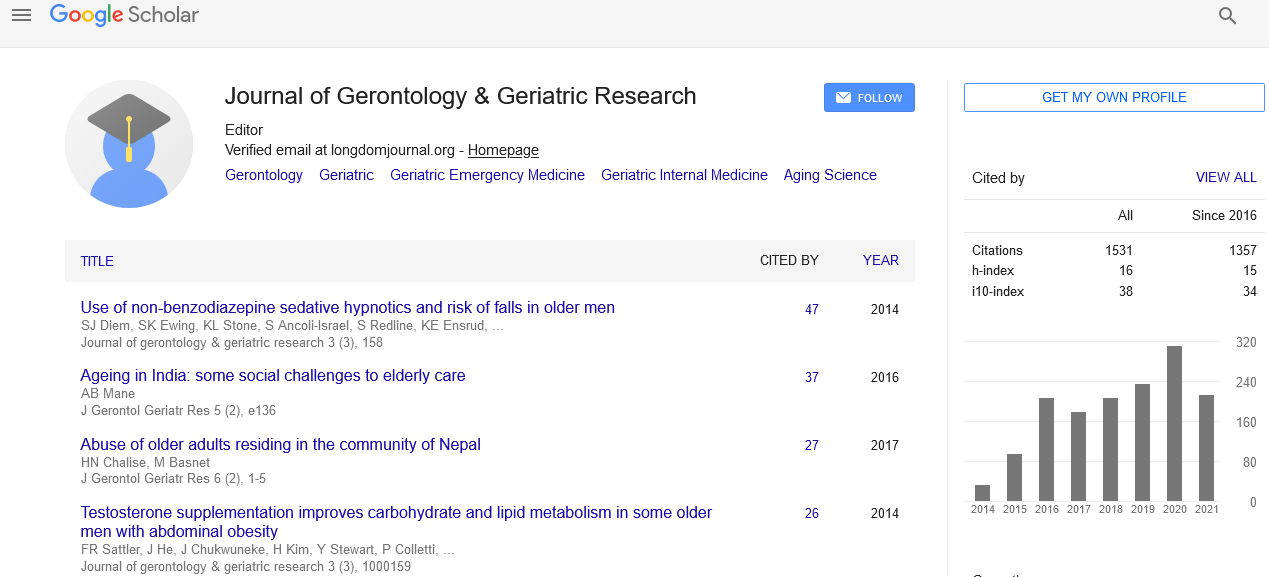PMC/PubMed Indexed Articles
Indexed In
- Open J Gate
- Genamics JournalSeek
- SafetyLit
- RefSeek
- Hamdard University
- EBSCO A-Z
- OCLC- WorldCat
- Publons
- Geneva Foundation for Medical Education and Research
- Euro Pub
- Google Scholar
Useful Links
Share This Page
Journal Flyer

Open Access Journals
- Agri and Aquaculture
- Biochemistry
- Bioinformatics & Systems Biology
- Business & Management
- Chemistry
- Clinical Sciences
- Engineering
- Food & Nutrition
- General Science
- Genetics & Molecular Biology
- Immunology & Microbiology
- Medical Sciences
- Neuroscience & Psychology
- Nursing & Health Care
- Pharmaceutical Sciences
Teaching older adults language can be successful when conditions are right
International Conference on Geriatrics & Gerontology
July 08-10, 2014 DoubleTree by Hilton Hotel Chicago-North Shore Conference Center, USA
Erin M Ingvalson, Casandra Nowicki, Audrey Zong and Patrick C M Wong
Scientific Tracks Abstracts: J Gerontol Geriat Res
Abstract:
Years of evidence indicate that speech sound learning is most easily accomplished in early life. Recently, investigations into individual differences in speech learning, however, suggest that matching a learner with a training paradigm that fits his ability may alleviate some of the difficulties of learning in later life. Perrachione and colleagues (2011) found that younger adults could achieve greater learning success than previously seen when learning Chinese lexical tones by matching learners with a training paradigm that fit their pre-training lexical tone perception ability. In the present experiment we explored whether older adults would similarly benefit from matching training paradigms with their pre-training speech perceptual abilities, and if this matching would result in successful non-native speech learning in older adulthood. Because older adults have more experience with their first language, leading to more solidified perceptual categories, and because they have reduced cognitive abilities as a function of normal aging, we hypothesize that the conditions that lead to successful learning in younger adults may not be the same that lead to successful learning in older adults. This hypothesis was confirmed.In the younger adults, those listeners who showed a greater aptitude for lexical tone benefitted from training using multiple talkers whereas those who were weaker in lexical tone perception prior to training showed stronger performance following training with only one talker. Conversely, older adults, regardless of pre-training ability to perceive lexical tone, performed better following training with multiple talkers than with training using only one talker.
Biography :
Erin M Ingvalson, PhD, is a Research Assistant Professor in the Department of Otolaryngology at Northwestern University?s Feinberg School of Medicine. She received her PhD in Psychology from Carnegie Mellon University and completed her postdoctoral training in Communication sciences and Disorders from Northwestern University. Her interests are in individual differences in speech perception and speech learning across the lifespan.


